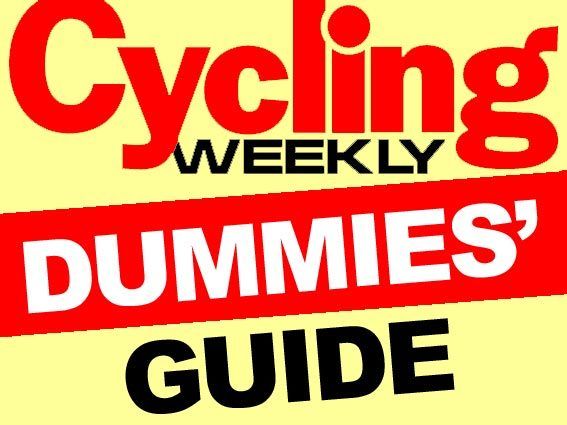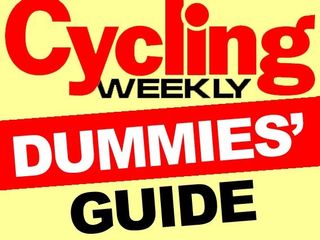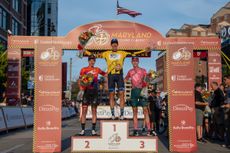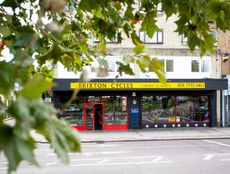COUNTDOWN TO PARIS-NICE AS ROW ESCALATES

It?s the Friday before Paris-Nice. The first really important stage race of the season.
Not only is it a key part of the preparation for the riders with their eye on the Classics, it?s also an early opportunity for the stage race contenders to come out to play. We should be looking forward to the race, tipping the winners, examining the key points on the route
Instead we?re trying to make sense of the power struggle that is blighting professional cycling. ASO versus the UCI. Dogma versus rhetoric. Winners ? debatable. Losers ? just about everyone.
We wouldn?t blame you if you switched off now and went and did something more interesting and productive.
As it stands now, the teams are taking part in Paris-Nice and they have submitted strong line-ups to please ASO.
However, the Court of Arbitration for Sport has been asked to rule whether the UCI?s bans would be enforceable. Their decision is due this afternoon (Friday). And the teams have some time to digest the possible consequences and have until Saturday afternoon to confirm their teams. The proof of their stance will be in the names on the start sheet. Weak teams means the UCI has the upper hand, strong teams means ASO is in the ascendancy.
Not that it?ll mean the end of the row, that?s for sure.
Get The Leadout Newsletter
The latest race content, interviews, features, reviews and expert buying guides, direct to your inbox!
Pat McQuaid has stuck to his guns by saying that teams which participate in Paris-Nice will be thrown out of the UCI, which would mean meltdown.
But stick with it. Here we look at the possible actions, outcomes and consequences ahead of Sunday?s Paris-Nice.
Who will ride, and if they do will they reach Nice? Will they protest? Will half the peloton find itself banned, sitting on the sidelines while engaged in a bitter legal war to over-turn the UCI?s sanction.
Or is this the start of a two-tone professional cycling. The UCI with its global ProTour on the one hand and a rival ASO league ? together with some other major organisers ? on the other?
At this moment a reconciliation looks unlikely. Both sides are so entrenched and the language has become more aggressive and the threats louder.
| WHAT COULD HAPPEN? |
With less than 48 hours to go until Paris-Nice, it could still go one of a number of ways
SCENARIO A
ACTION The ProTour teams ride Paris-Nice with strong line-ups and defy the UCI threats
CONSEQUENCE The UCI decides to impose bans of between one month and six months for participating in a non-UCI sanctioned event
FALL OUT The teams are united. They sue the UCI and take the governing body to the Court of Arbitration for Sport in a bid to over-turn the bans. Meanwhile, the UCI forces non-ASO races to bar riders who competed in Paris-Nice
WINNERS ASO, fans who want to see a strong race
LOSERS Riders who want to do the Olympics, UCI, team sponsors
SCENARIO B
ACTION The ProTour teams take part, but with weakened line-ups, fearing the threat of bans for their top stars and deciding not to expose riders who may be under pressure from their national federations not to risk a suspension that could affect their Olympic participation
CONSEQUENCE ASO is angered and threatens to de-select teams it deems to have shown disrespect to Paris-Nice from the Tour de France
FALL OUT The teams have to win favour in order to safeguard their Tour places. Teams put pressure on UCI to back down, while persuading ASO to run its races under UCI rules
WINNERS ASO ? this is an endorsement from the teams to set up a breakaway league
LOSERS UCI
SCENARIO C
ACTION The foreign ProTour teams pull out of Paris-Nice and the race goes ahead with a small, predominantly-French field
CONSEQUENCE The UCI declares victory and gains strength, forcing ASO to either back down and rejoin the UCI or set up a breakaway league. Then the scramble would be on to persuade teams and riders to join the ASO breakaway league of events. RCS and Unipublic, itself rumoured to be a target on ASO?s shopping list, would then be key players as their decision could tip the balance of power
FALL OUT ASO is angered and bans riders and teams from the Tour, declaring the race to be the king, not the riders and teams.
WINNERS UCI, given a smaller number of riders to sanction, can hand out stiff penalties as a warning to others, the lawyers brought in to contest the suspensions. Ironically, the UCI's position strengthens if some ? but not all ? of the teams defy them. A manageable number of riders can be banned and made an example of. If the teams stay united, the UCI faces having to ban all its teams and riders, which would leave it weak
LOSERS Those riders who defied the UCI, the teams that put them in the position and ASO
SCENARIO D
ACTION All the ProTour teams pull out, leaving the event with a last-minute scramble to assemble a field
CONSEQUENCE ASO is humiliated
WINNERS UCI
LOSERS ASO
| WHY THE TOUR HOLDS THE KEY |
An imaginary conversation between a team owner/sponsor and a team manager
Manager We?ve got a bit of a problem with Paris-Nice. What should we do?
Mr Sponsor Go on...
Manager Well, the riders have been threatened with a suspension by the UCI if they ride.
Mr Sponsor Right?
Manager And they could be suspended from the Olympic Games.
Mr Sponsor The Olympic Games where they race for their countries and can?t wear anything showing my logos?
Manager That?s the one.
Mr Sponsor What else?
Manager They could also be banned from the World Championships.
Mr Sponsor You mean the race where they ride for their countries and can only show my logo very small?
Manager The very same.
Mr Sponsor What about the Tour de France?
Manager Well, if we ride Paris-Nice, it?ll go down well with ASO.
Mr Sponsor I think you have your answer.

| GLOSSARY |
Before we start, a brief who?s who of the main players. (If you still care, that is)
UCI
Union Cycliste Internationale. Swiss-based world governing body for cycling that sets and enforces the rules of cycle sport. Irishman Pat McQuaid is the current president. He succeeded Hein Verbruggen in 2005.
ASO
Amaury Sport Organisation. Paris-based company that owns the Tour de France, Paris-Nice, Paris-Roubaix and a portfolio of other races. Patrice Clerc is ASO?s president. Christian Prudhomme is general director of the Tour de France. Additionally, Groupe Lagardére, a French media group, has a stake in the Amaury company. Groupe Lagardère now owns the Tour of Germany. Amaury also owns L'Equipe, the daily sports newspaper.
AIGCP
Association of Professional Cycling Teams. An association of ProTour teams. Its president is Eric Boyer, Cofidis manager, who succeeded Patrick Lefevere last year.
CPA
The riders? union, looking after the interests of the professional riders. President is Cedric Vasseur.
RCS
The Italian company that owns the Giro d?Italia, Milan-San Remo, Tour of Lombardy and other Italian races.
Unipublic
Madrid-based company that owns the Vuelta a Espana.
| EXPLAIN IT TO ME SLOWLY... |
How did all this start?
The origins of the current row can be traced back to the end of 2004 when the UCI unveiled its plans for the ProTour. Right from the start ASO, RCS and Unipublic were uncomfortable with the governing body?s vision of a season-long competition. A particular sticking point was the imposition of the UCI?s selection criteria, which meant ProTour races had to accommodate all 20 ProTour teams, reducing the opportunity to offer wild cards to the important local teams outside the ProTour system.
So what happened?
The UCI persisted with the ProTour and the grand tour organisers allowed their races to be included. You may remember the 2005 Paris-Nice was the first event. That was when the UCI invited Lance Armstrong to start the prologue wearing the new white ProTour leader?s jersey. At the end of the race, ASO refused to allow the UCI to present winner Bobby Julich with the ProTour jersey on the podium. ASO?s reasoning was that the sponsors of Paris-Nice?s leaders jersey had paid to have their moment in the spotlight and that they were honouring that commitment.
When did the problems escalate?
When the team selection criteria for ProTour races was not be revised by the UCI, ASO, RCS and Unipublic were angry. They spent 2006 in a permanent state of threatening to pull out of the ProTour.
At the start of 2007, the Swedish-sponsored Unibet.com found itself centre of the row.
There was a stand-off prior to Paris-Nice during which ASO withdrew all its races from the ProTour. An uneasy agreement was reached when the UCI allowed ASO freedom to invite the teams it wished.
Citing a French law concerning the advertising of gambling servives, ASO decided not to invite Unibet.com (although they had raced without problems in France in 2006). Unibet.com were also left out of some RCS and Unipublic races.
However, the ASO events remained part of the ProTour scoring system until the winter, when the French company again re-iterated its desire to be left out of the ProTour.
The UCI agreed to that point, so what?s gone wrong?
Indeed, the UCI removed all ASO and RCS races, as well as Unipublic?s Vuelta a Espana and placed them on alternative calendars. They perservered with the ProTour, though, keeping the remaining events and adding the Tour Down Under.
All the races ? bar the Tour de France ? were given permission to select teams according to their own criteria.
The Tour de France was the problem then?
The UCI felt that by agreeing to remove the ASO events from the ProTour, it was only fair that that ASO agreed to accept all 18 ProTour teams. This was because everyone ? even the UCI ? accepts that the Tour is the jewel in cycling?s crown. If they could get ASO to offer a place to all the ProTour teams, they would be salvaging the ProTour.
The problem was, when the UCI unveiled the new calendars, with the Tour taking pride of place in the new ?World Calendar? category, ASO remained silent on the smallprint stating they would have to select all 18 ProTour teams.
They didn?t agree with the condition?
Evidently not, because they decided to make Astana this year?s political football. Having wrecked the race in 2007, ASO said Astana would not have a place in any of its races. Itself not a problem as far as the likes of Paris-Nice are concerned, but a different matter when it comes to the Tour.
So why has Pat McQuaid gone to war over Astana when he did not take such strong steps with Unibet.com?
It?s an excellent question and one we?d like him to answer.
Now we have a situation where ASO has decided to run Paris-Nice outside the UCI?s regulations. How did that happen?
ASO upped the ante by stating that Paris-Nice would be run under French Cycling Federation regulations and French law. The UCI responded by saying that riders who hold a UCI licence are not allowed to compete in unsanctioned events. So, if they ride Paris-Nice they run the risk of a ban. McQuaid hasn?t actually said: ?You ride, you?re banned? which has led to the uncertainty that will last right up to the moment the prologue is supposed to start on Sunday.
It?s all very well threatening to ban riders from the Olympics and Worlds but what about the Tour?
The Tour is run by ASO. It?s possible the same debate will be happening in July but, of course, the Tour is the Tour. If it came down to it, the teams would ride.
Which way is the wind blowing at the moment?
When ASO agreed to some changes to the rules concerning participation in Paris-Nice it seemed the teams were coming down on the side of the French organisation. McQuaid?s threats are not playing well with the teams and riders. But some teams and riders ? particularly those who want to be free to race in non-ASO events in the near future (the Tour of Flanders being one, perhaps), and those who want to race in the Olympics, look likely to discreetly skip Paris-Nice, while being careful not to snub ASO.
In a nutshell, what are the two side's positions?
The UCI, for all its talk about working for the good of cycling, wants greater influence, and eventually a bigger slice of the pie, of elite professional cycling. Traditionally, though, it's not a race organiser or television rights negotiator, it's a rule-maker. It has little to bring to the table that would appeal to ASO.
ASO sees the row as an opportunity to make a power-grab. The UCI annoyed it by trying to impose rules and selection criteria and its ineffectual handling of the doping problem (until recent months) damaged ASO's races. Now ASO can divide and conquer by seeing who's with them and who's against them. As a private company, that is their right, but it if they take one step outside the jurisdiction of the UCI they may as well take a hundred and see who marches with them.
What are the implications for dope testing?
ASO has made much of the fact it will increase the number of blood and urine tests at Paris-Nice but the UCI has pointed out that any bans for riders who test positive would only be enforceable in France. At a time when the biological passport scheme is in its infancy, this fighting is not helpful.
It?s a mess isn?t it
Yes.
RELATED LINKS
McQuaid defied anti-apartheid ban to race in South Africa. Is he the right man to lecture others on where to race?
Cavendish and Wiggins avoid Paris-Nice and possible UCI ban
Analysis: UCI v ASO. How did it come to this and where do we go next?
Row intensifies as UCI ask Boyer to step down

Thank you for reading 20 articles this month* Join now for unlimited access
Enjoy your first month for just £1 / $1 / €1
*Read 5 free articles per month without a subscription

Join now for unlimited access
Try first month for just £1 / $1 / €1
Sports journalist Lionel Birnie has written professionally for Sunday Times, Procycling and of course Cycling Weekly. He is also an author, publisher, and co-founder of The Cycling Podcast. His first experience covering the Tour de France came in 1999, and he has presented The Cycling Podcast with Richard Moore and Daniel Friebe since 2013. He founded Peloton Publishing in 2010 and has ghostwritten and published the autobiography of Sean Kelly, as well as a number of other sports icons.
-
 Lidl-Trek, EF Education-EasyPost among first teams to seize ‘the only chance to race in the United States’
Lidl-Trek, EF Education-EasyPost among first teams to seize ‘the only chance to race in the United States’With a world-class field of competitors, organisers hope to showcase professional cycling to American spectators and reignite fan interest
By Anne-Marije Rook Published
-
 'This sucks': Brixton Cycles closes its doors after 42 years
'This sucks': Brixton Cycles closes its doors after 42 yearsIconic London shop announces closure after premises listed on property site
By James Shrubsall Published